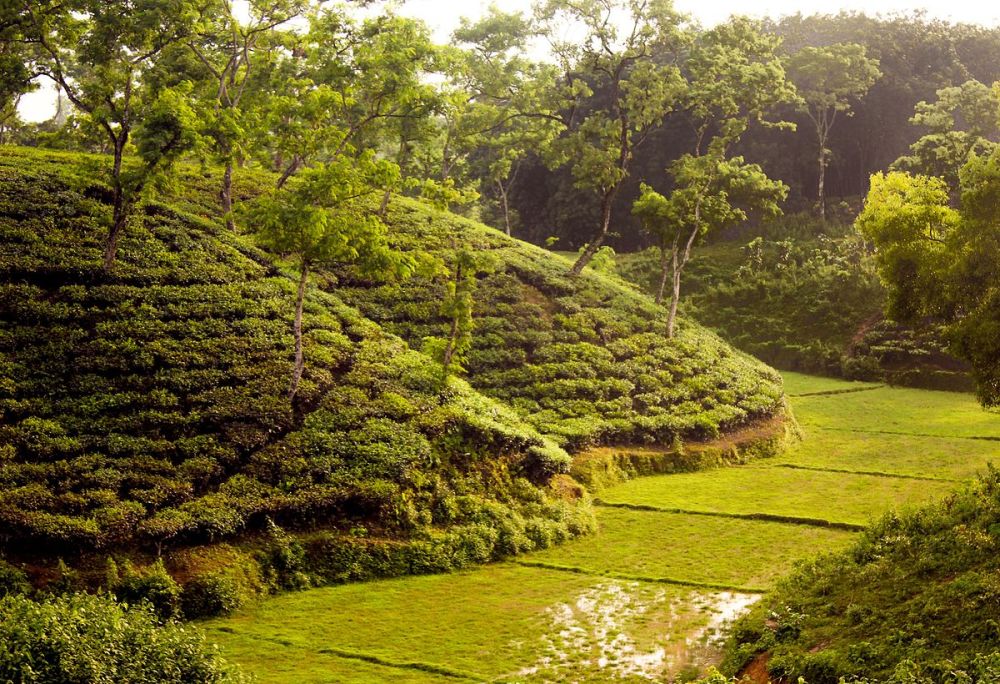

Nestled in the picturesque rolling hills of the Sylhet Division in Bangladesh, the Srimangal Tea Gardens are the epitome of natural beauty and serenity. Renowned for their extensive tea plantations, these gardens spread across hectares of land, offering visitors stunning panoramic views of lush greenery and an opportunity to witness the life and culture surrounding the tea industry in Bangladesh.
Tourism in the Srimangal Tea Gardens has a roots that can be traced back to the British colonial era, during which the first tea estate was established in the Sylhet region around 1854. With the growth of tea cultivation, Srimangal emerged as the "Tea Capital" of Bangladesh, drawing the interest of visitors intrigued by the tea-making process and the breathtaking landscape. Over the decades, the area has developed its infrastructure to cater to tourists, introducing better transportation, accommodation, and guided tours to enhance the visitor experience.
Initially attracting a niche group of travelers, "tea tourism" gained popularity in the Srimangal region by offering a unique blend of cultural and environmental activities. Tourists have the opportunity to explore the vast tea gardens, learn about tea picking, processing, and enjoy freshly brewed tea amidst the plantations. The evolution of tea tourism has contributed significantly to the local economy by creating jobs and encouraging sustainable tourism practices.
More recently, the tourism trend in Srimangal Tea Gardens has seen a shift towards eco-tourism and immersive cultural experiences. Visitors are increasingly interested in not only the tea estates but also the diverse wildlife, including the nearby Lawachara National Park, home to the endangered Hoolock gibbons. The introduction of homestays and community-run lodges allows tourists to experience local hospitality and learn about the culture and traditions of the indigenous Khasi and Manipuri communities.
Tourists visiting the Srimangal Tea Gardens can expect a tranquil environment, punctuated by the vibrant colors of tea leaves that range from fresh green to a gleaming coppery hue during harvest. The area is rich in tea research institutes, where visitors can delve deeper into the science and economics of tea cultivation. Additionally, the tea gardens are the perfect backdrop for photographers, nature enthusiasts, and those seeking a peaceful retreat away from the bustle of city life.
In conclusion, the Srimangal Tea Gardens remain a significant and enchanting destination for travelers. Its rich history, coupled with its evolving tourism trends, continues to offer a captivating and educational experience. Whether it's the allure of the tea gardens, the charm of the local communities, or the pursuit of sustainability, Srimangal stands out as a must-visit destination for anyone traveling to Bangladesh.